Monday Memo: The Irresistible Offer
By Holland Cooke
Consultant
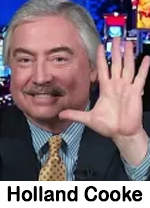 Having written thousands of commercials and promos, I’ve become a copy connoisseur. And, admittedly, a tough grader when it comes to delivery. Sell me and you’re good.
Having written thousands of commercials and promos, I’ve become a copy connoisseur. And, admittedly, a tough grader when it comes to delivery. Sell me and you’re good.
So, all four flight attendants caught my ear as I flew to/from a radio conference in Hawaii. The pitch came toward the end of 10+ hours each way nonstop Boston/Honolulu; and aboard the quick hops to/from Kauai.
They sounded neither sing-songy, as though they were reading; nor falsely enthusiastic. That alone impressed me. Thirty years ago, I scripted such announcements – and coached flight attendants – when I programmed 3 live USA Today Sky Radio channels aboard Delta, United, and Northwest Airlines. Back to the future…
They were hawking the Hawaiian Airlines Mastercard, which, already having a wallet full of plastic, I didn’t need. Each dollar spent earns a Hawaiian Mile (double miles for restaurant purchases), which would be tempting if I wanted to visit again. But I wasn’t sold… yet. I had been to Hawaii once before, on vacation, and only went this second time for business. Travelogue here recently explains that we East Coasters have quicker paths to paradise.
Typically, these affinity cards come with a signing bonus. Another one I have awarded 20,000 points if I used it to make at least $1,000 in purchases within the first 90 days. So, I smiled when these flight attendants emphasized that – using the promo code on applications they were handing out – I could quickly earn 80,000 miles, a bonus “you won’t see if you sign-up online.”
And as an announcement aficionado, I noted how all four recited this line verbatim: Unlike other cards that ask $1,000 or more purchases to qualify, “Just buy a cup of coffee or a pack of gum, and you’ve got 80,000 Hawaiian Miles.”
And they explained that 80K was enough for a free round trip from Boston or New York to Honolulu, or TWO round trips from a West Coast airport… DARN tempting… if I ever want to go back to Hawaii. Still not sold.
The clincher? I can also use those miles on JetBlue, which services my home airport, Providence, and flies to the Bahamas. SOLD. And my first purchase was indeed for a cup of coffee, and I did get the 80,000 miles. So, this is my restaurant card now.
Every time I’ve told this story in a client station sales meeting, at least one rep says, “Spell that all out again?” and starts writing. Successful sellers anticipate and address objections as well as that inflight announcement. Ditto commercial copy you craft for local retailers. Welcome aboard.
Holland Cooke (HollandCooke.com) is a consultant working at the intersection of broadcasting and the Internet. He is the author of “The Local Radio Advantage: Your 4-Week Tune-In Tune-Up,” and “Close Like Crazy: Local Direct Leads, Pitches & Specs That Earned the Benjamins” and “Confidential: Negotiation Checklist for Weekend Talk Radio.” Follow HC on Twitter @HollandCooke and connect on LinkedIn




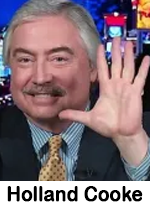 Pick a day, any day. At least one news item will have the little voice in your head hollering “TELL me you’re kidding!” After recent headlines, and as various plots thicken, that little voice might need a lozenge.
Pick a day, any day. At least one news item will have the little voice in your head hollering “TELL me you’re kidding!” After recent headlines, and as various plots thicken, that little voice might need a lozenge.
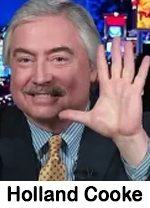 Before the bound copy arrived – at which point all work stopped – Arbitron would send “Advances.” Even those topline numbers ground things to a halt, and had some PDs doing cartwheels, others out on the ledge. ‘Seems quaint now.
Before the bound copy arrived – at which point all work stopped – Arbitron would send “Advances.” Even those topline numbers ground things to a halt, and had some PDs doing cartwheels, others out on the ledge. ‘Seems quaint now.
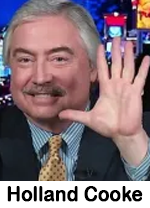 For spring break this year, Sarah and I revisited Sandals Grand Bahamian all-inclusive resort – NOT inexpensive, and very worth it. We’ve already booked same-week-next-year, and we think we know who we’ll see there then.
For spring break this year, Sarah and I revisited Sandals Grand Bahamian all-inclusive resort – NOT inexpensive, and very worth it. We’ve already booked same-week-next-year, and we think we know who we’ll see there then.
 Sell a local advertiser a promotion – a contest which awards a major prize from the advertiser’s inventory – to the winner who creates the best commercial for the advertiser.
Sell a local advertiser a promotion – a contest which awards a major prize from the advertiser’s inventory – to the winner who creates the best commercial for the advertiser.
 It’s not your imagination. The world has gone daffy. The USA is all-but boots-on-the-ground in rough neighborhoods around the world. Weather is getting even wackier. The next gun nut could open fire, at any moment, anywhere. 2024 campaign? It’s a long way to November. And even in this rebounding economy, supermarket prices still hit-home… if you can get there.
It’s not your imagination. The world has gone daffy. The USA is all-but boots-on-the-ground in rough neighborhoods around the world. Weather is getting even wackier. The next gun nut could open fire, at any moment, anywhere. 2024 campaign? It’s a long way to November. And even in this rebounding economy, supermarket prices still hit-home… if you can get there.
 Radio programming is like any business. Our best prospects are existing customers (getting people already listening to listen more often). And – without spending a dime on outside promotion – we can if the station is known-for-knowing. Set the expectation that we have listeners’ backs and optimize the information we deliver.
Radio programming is like any business. Our best prospects are existing customers (getting people already listening to listen more often). And – without spending a dime on outside promotion – we can if the station is known-for-knowing. Set the expectation that we have listeners’ backs and optimize the information we deliver.
 If you’re a news/talk station, don’t assume that you own “news radio” in your market. Imaging is important, but it merely talks-the-talk. You walk-the-walk with local news copy that delivers what solid commercial copy does: benefits. Just doing local news makes you special. But do listeners simply hear a station voice… reading something? Are you merely… accurate? Or do you deliver “take-home pay,” unwrapping the story to tell the listener something useful?
If you’re a news/talk station, don’t assume that you own “news radio” in your market. Imaging is important, but it merely talks-the-talk. You walk-the-walk with local news copy that delivers what solid commercial copy does: benefits. Just doing local news makes you special. But do listeners simply hear a station voice… reading something? Are you merely… accurate? Or do you deliver “take-home pay,” unwrapping the story to tell the listener something useful?
 If
If 
 Now that every single thing is a political argument, the angry social media conversation about Taylor Swift is unsurprising. And with the Super Bowl looming, the decibel level amps-up.
Now that every single thing is a political argument, the angry social media conversation about Taylor Swift is unsurprising. And with the Super Bowl looming, the decibel level amps-up.
 As The Beatles sang, “It’s been a long, cold, lonely winter.” ‘Still is, eh?
As The Beatles sang, “It’s been a long, cold, lonely winter.” ‘Still is, eh?

 Take a day off. You get one free this year.
Take a day off. You get one free this year.
 This week, more than a hundred thousand inventors, investors, and techy-nerds from over 150 countries swarm Sin City for CES2024. You’ll be seeing all about it all this week on network newscasts and cable news channels and social media.
This week, more than a hundred thousand inventors, investors, and techy-nerds from over 150 countries swarm Sin City for CES2024. You’ll be seeing all about it all this week on network newscasts and cable news channels and social media.
 News flash: Time cannot be managed. But tasks can.
News flash: Time cannot be managed. But tasks can.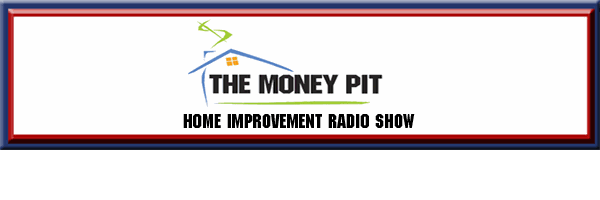
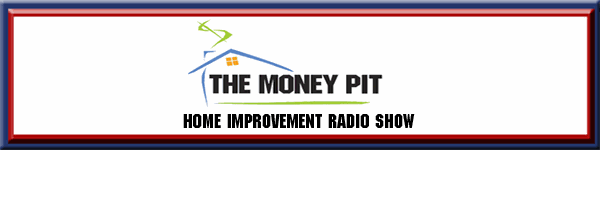
 Here’s actual news copy, from Joe Connolly’s business report one morning on WCBS, NY: “One third of all domestic flights are now late, by an average of one hour.”
Here’s actual news copy, from Joe Connolly’s business report one morning on WCBS, NY: “One third of all domestic flights are now late, by an average of one hour.”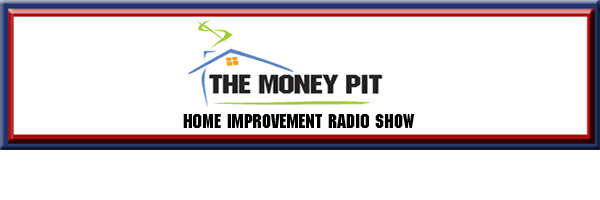
 “If you think radio has problems,” consultant Holland Cooke says, “Netflix et al are to television stations what Pandora et al are to music stations. So local news is TV stations’ silver bullet. And – like radio – their need to promote off-air exceeds their promotion budget.” In this week’s column, he outlines tactics for “partnering with a fellow broadcaster who’s also challenged.”
“If you think radio has problems,” consultant Holland Cooke says, “Netflix et al are to television stations what Pandora et al are to music stations. So local news is TV stations’ silver bullet. And – like radio – their need to promote off-air exceeds their promotion budget.” In this week’s column, he outlines tactics for “partnering with a fellow broadcaster who’s also challenged.”